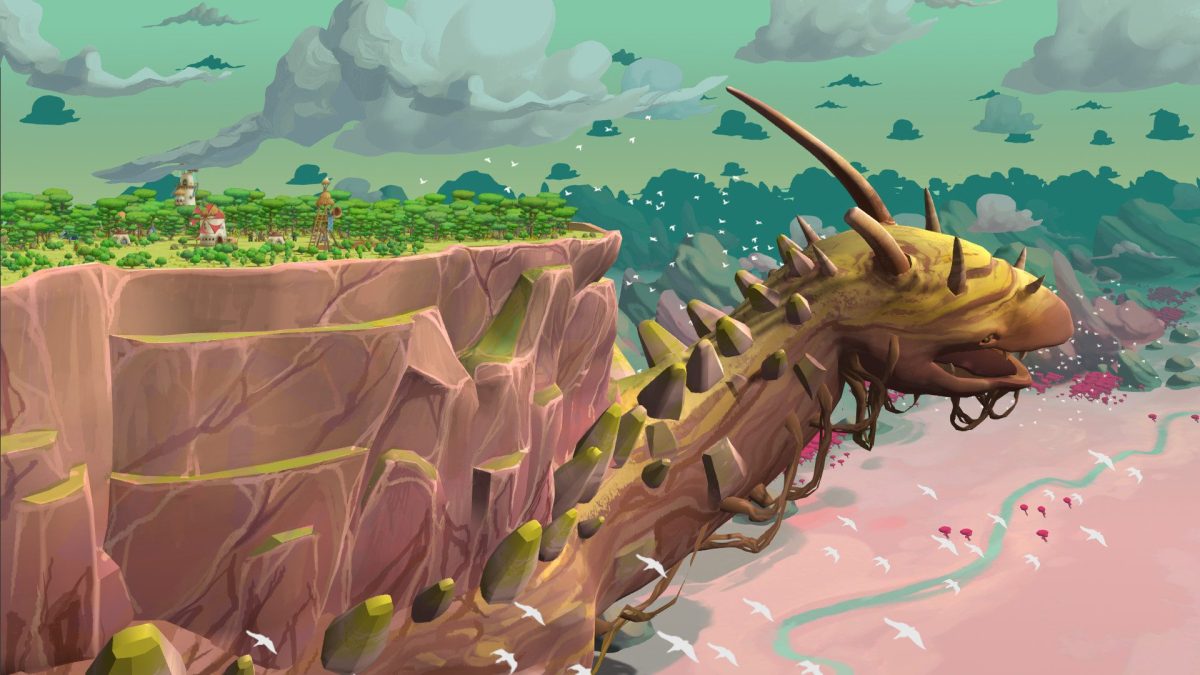From the ground up
While SimCity happened way back in 1989, the city builder genre is in a sort of renaissance. Sure, Cities: Skylines continues its stranglehold on municipal simulation, but a sub-genre has sprung up in its shadow; the survival city builder (sometimes just known as settlement-builders). While this genre has technically been around for decades, it only started finding its identity in the wake of 2014’s Banished. Since then, a number of games like Settlement Survival have picked up the ball where it was left, and other games like Frostpunk have taken the concept in different directions.
Management games, in general, and city builders as a whole are big relaxation games for me. While games that require a hyper-focused state, such as Doom Eternal, help me manage my anxiety, it’s city builders that help me unwind.
The genre shows no sign of letting up, with games like Stray Fawn Studios’ The Wandering Village and Team Kerzoven’s Circle of Kerzoven on the horizon with differing approaches. Both games are from Switzerland and under the SwissGames umbrella, which gave me the opportunity to talk to both of them.
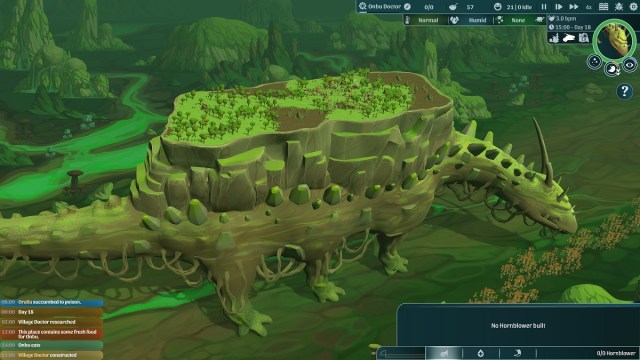
One step further
Circle of Kerzoven is the most closely adjacent to Banished of the two projects. The big difference is that the environment is simulated within it. Not only do you manage the needs of your settlers, but you also must balance their needs against the resources available. Not respecting nature can cause animals to go extinct or even “explosively multiply.”
“When Banished was released, I was extremely impressed by the consistent simulation of the villagers,” described Marco Burri, founder of Team Kerzoven and Lead Developer on Circle of Kerzoven. “You could observe the life of each person, which was unique at that time. However, I thought to myself, ‘Why not go one step further? Why not simulate and represent plants and animals this way as well?’ Furthermore, due to my background as a systems engineer, I have a flair for detailed simulation models, control loops, and complex natural processes.”
Despite the survival element of the game, Tearm Kerzoven still focused on making Circle of Kerzoven a relaxing experience. “Who does not want to be cozy? I think in our everyday life, we experience a lot of stress and find ourselves in an ever faster-changing world. Circle of Kerzoven also relies heavily on the element of slowing down as part of the gameplay experience. That’s why a lot of Kerzoven is about observing things like ‘how does nature behave?’ ‘Is the soil moist enough for my forest?’ or ‘is the wolf population doing well?’”
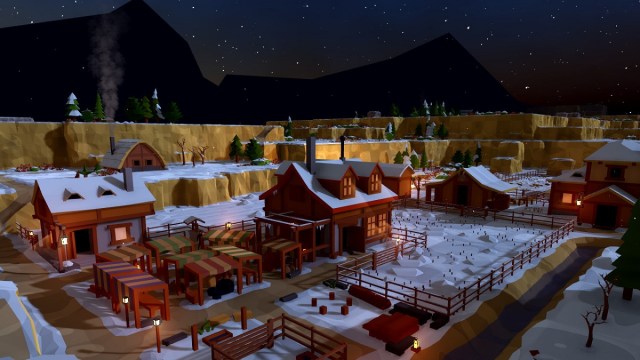
Principle of Symbiosis
Stray Fawn Studios’ The Wandering Village has a different approach but still has the same focus on co-existing with nature. You build your settlement on the back of a massive, wandering creature called an Onbu. You not only need to keep your villagers healthy and happy but also tend to the needs of the very land itself. “At its core, it’s a game about the biological principle of symbiosis,” described Philomena Schwab, co-founder of Stray Fawn Studios and game designer on The Wandering Village.
“The game’s setting is inspired by Indian and northern mythology. The legend of the ‘world turtle’ can be found in many movies, books, and games, but there has never been a game that makes the creature its primary game mechanic before. In terms of story and world-building, we are strongly inspired by the 1984 Japanese animation movie Nausicaä of the Valley of the Wind.” The narrative link there is that the world is overwhelmed by toxic fungus, which makes the relative safety of the Onbu that much more important.
I asked Schwab what they thought of the rising popularity of cozy games, and they had this to say, “The target group for games has become much wider in the past few years, allowing many new genres and topics to find an audience. Also, I believe that people are seeking comforting experiences in the wake of the recent events that are happening to our society.”
Personally, I prefer the term “dumpster fire” to describe the recent events that are happening to our society.
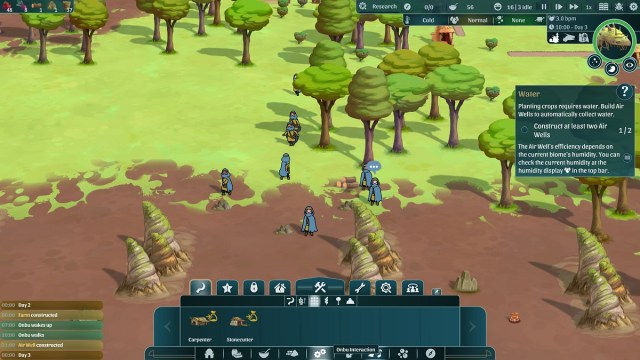
The influence of beavers
I already loved city builders back when I was a kid, and SimCity had a huge effect on my development. It created an interest in urban planning and cities in general that has lasted to this day. I wanted to hear what the developers considered the best games in the genre.
For Marco Burri, “Some of my favorites can be seen in Kerzoven: As always when developing a game, I borrowed some mechanics from the best. For example, the fact that several player villages in different climatic zones are simulated simultaneously is inspired by the Anno series. Of course, an old master must not go unmentioned here. Dwarf Fortress. It has always fascinated me, and it is thanks to Dwarf Fortress that I focused on a rich simulation of nature and all living things in Kerzoven. There are a lot more great games with great mechanics like Timberborn, Wandering Village, or Cities: Skylines.”
Meanwhile, for Philomena Schwab, “Personally, I greatly enjoy Kingdoms and Castles because of how accessible the devs made the game. In many city builders, you have a steep learning curve, but this game lets you jump right in. I’m also a fan of Timberborn, because of its adorable setting, and I played waaaay too many hours of Banished.”
All great games, but I have to echo the love of Timberborn. Still in Early Access, Timberborn is a fantastic survival city builder that combines urban planning and engineering. Plus, all your villagers are beavers, which makes it even better. I’m very happy to see both developers give it a shoutout.
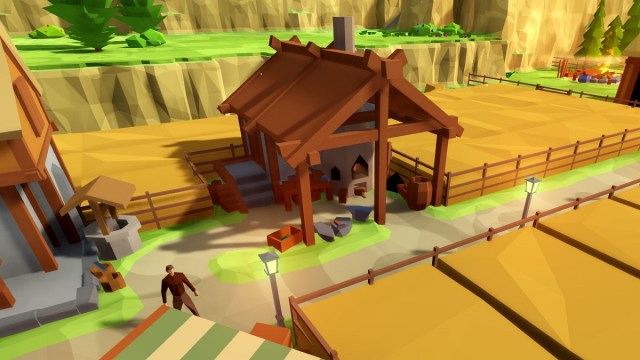
The value of failure
Speaking of survival, one of my favorite parts of city builders has been the disasters. While suffering is always fun to watch, I also enjoy trying to rebuild and rise from the ashes. However, their random nature can be frustrating, so I wanted to see what modern developers think of the mechanic.
Marco Burri from Team Kerzoven had a unique thought on the facet, “I like disasters or dangers which are emerging from the simulation, for example, when you shoo away all carnivores and then get a rat plague, which then eat all the vegetables and corn around the village like in Circle of Kerzoven. You can see the issue building up and have the chance to mitigate the problems or learn for the future. I personally do not like event disasters in games like tornadoes or earthquakes if you can not prepare or avoid the disaster.”
It’s sort of interesting to see the contrast of Philomena Schwab’s answer, “Personally, I’m always a fan of survival mechanics in city builders. Feeling that everything I build is fragile and could be destroyed if I’m not careful gives me a greater sense of purpose and value in city builders (and many other genres too). I love to fail, figure out what I did wrong, and try again.”
I like seeing meteors gouge big craters out of the landscape, then building within the new landscape feature. Perhaps it’s my storyteller’s perspective; the people have this reminder of the disaster beneath their feet. It shows that you can return from destruction.
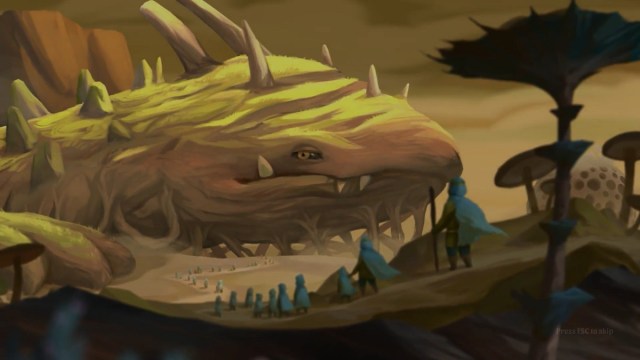
Swiss bank account
Both Circle of Kerzoven and Wandering Village are small indie productions. They recieve funding in part by Swiss Arts Council Pro Helvetia’s SwissGames initiative. I asked Oliver Miescher, Head of International Platforms, about the requisites to obtain funding (beyond being based in Switzerland).
“The Swiss game studios who are supported by Pro Helvetia must convince a jury with international experts,” they explained. “They select projects with originality and a high artistic quality which have an international market potential. They also have an eye on the technical approach, how the game was made, and how relevant it is compared to other indie releases around the globe.”
Oh gosh. That sounds intense.
“One of the biggest challenges for indie studios is the short runway that indie studios have, i.e., the length of time a studio can work on a project without additional funds. Especially in Switzerland, we do have a lot of talented game studios with a lot of great game ideas, but in Switzerland, there are no investments.”
“That’s why we bring Swiss game studios to GDC and other fairs to help them find financing partners like publishers, who make their projects possible at the end. At the same time, we also bring different game developers from Switzerland and other countries together and build a network with industry people from all over the world. In this ‘safe space,’ studios can exchange with people from all over the world and get valuable feedback regarding the business questions they have. We support them with business skills (coaching and mentoring activities) and prepare them to be ready with their projects before they meet possible partners at the fairs around the world.”
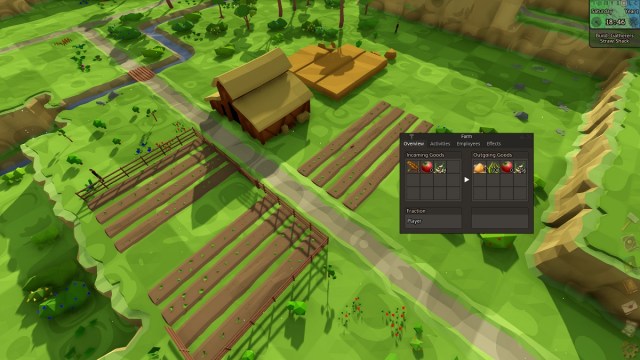
City eating
After a slump in the ‘00s, fans of city builders are eating well, thanks to the indie market. In a way, the genre seems to be a great nexus for imagination and logical construction. Plus, as the developers have pointed out, the state of the world has created fertile soil for more relaxing genres.
However, being an indie developer and trying to support yourself off that line of work is extremely difficult. Even the best executed and most well-imagined games won’t get the recognition they deserve. It’s helpful to have the support of the Swiss Arts Council Pro Helvetia to help with PR and establish mentorship.
The Wandering Village is currently in Early Access for PC. Circle of Kerzoven is also focusing on PC, and will drop into Early Access later this year.
